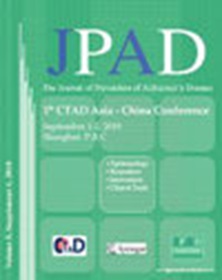2018年修订的FDA早期阿尔茨海默病指南:建立治疗效果的意义
IF 7.8
3区 医学
Q1 CLINICAL NEUROLOGY
引用次数: 18
摘要
本报告回顾了2018年修订的FDA早期AD指南,重点是临床结果评估(coa)的意义。与2013年草案相比,2018年草案对确定coa的意义的重视程度发生了根本性的变化。这一转变的含义包括认知在临床上是有意义的,但根据试验中参与者的疾病阶段,对认知的有说服力的影响是一个足够大的影响,建立在多个相关领域,并且可以通过反映潜在AD病理变化的生物标志物来支持。意义是通过理解所测量的概念相关性和任何治疗效果的大小来建立的。其他FDA指南和独立的良好规范出版物中存在关于如何评估意义的先例,例如通过评估内容有效性和诸如最小重要差异之类的概念。此外,FDA正在制定一系列以患者为中心的药物开发(PFDD)方法学文件,以提供关于该主题的进一步指导,旨在解决方法学上的差距和推荐的最佳实践。重要的是,PFDD方法在AD中的应用落后于其他领域,coa的已发表内容效度有限,缺乏支持性质的研究。建立健全的老年痴呆症概念模型和制定有意义的健康结果的新型直接衡量标准的举措,将对临床试验中疗效的衡量和付款人对受益人价值的确定产生重大影响。从患者和护理者的角度更好地认识到什么是有意义的,将为监管审查和决定治疗的支付和覆盖范围提供信息。本文章由计算机程序翻译,如有差异,请以英文原文为准。
The 2018 Revised FDA Guidance for Early Alzheimer’s Disease: Establishing the Meaningfulness of Treatment Effects
The present report reviews the revised 2018 FDA guidance for early AD, with an emphasis on meaningfulness of clinical outcome assessments (COAs). A radical shift is evident in the importance given to establishing the meaningfulness of COAs in the 2018 draft versus the 2013 draft. The implications of this shift include the assertion that cognition is clinically meaningful, but that a persuasive effect on cognition, depending upon disease stage of the participants in the trial, is one that is of enough magnitude, established across multiple relevant domains, and can be supported by biomarkers reflecting underlying AD pathological changes. Meaningfulness is established through an understanding of the conceptual relevance of what is being measured and magnitude of any treatment effect. Precedent exists within other FDA guidance and independent good practices publications as to how meaningfulness may be assessed e.g. via evaluation of content validity and concepts such as minimally important difference. Additionally, FDA is developing a series of methodological Patient Focused Drug Development (PFDD) documents to provide further guidance on this topic, which are aimed at addressing gaps in methodology and recommended best practice. Importantly, application of PFDD approaches to AD is behind that in other areas and there is limited published content validity for COAs and a lack of supportive qualitative research. Initiatives to build robust conceptual models of AD and develop novel direct measures of meaningful health outcomes will have a significant impact on measurement of efficacy in clinical trials and on payer determinations of beneficiary value. Greater recognition of what is meaningful from the perspective of the patient and caregiver will inform regulatory reviews and determinations for payment and coverage of treatments.
求助全文
通过发布文献求助,成功后即可免费获取论文全文。
去求助
来源期刊

Jpad-Journal of Prevention of Alzheimers Disease
CLINICAL NEUROLOGY-
自引率
7.80%
发文量
85
期刊介绍:
The JPAD « Journal of Prevention of Alzheimer’Disease » will publish reviews, original research articles and short reports to improve our knowledge in the field of Alzheimer prevention including : neurosciences, biomarkers, imaging, epidemiology, public health, physical cognitive exercise, nutrition, risk and protective factors, drug development, trials design, and heath economic outcomes.
JPAD will publish also the meeting abstracts from Clinical Trial on Alzheimer Disease (CTAD) and will be distributed both in paper and online version worldwide.
 求助内容:
求助内容: 应助结果提醒方式:
应助结果提醒方式:


